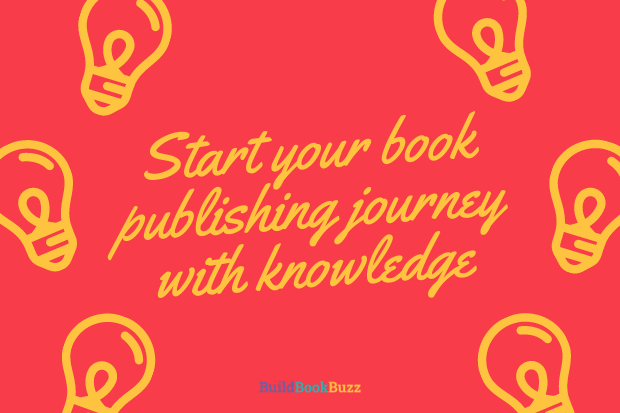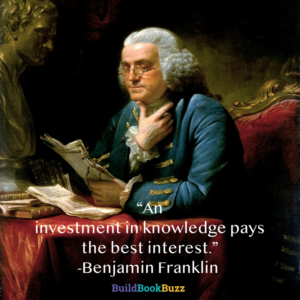Start your book publishing journey with knowledge
As you write, publish, and market your books, how do you know that you’re on the right track?
What are you doing – or have you done – to ensure that your end product is something that readers need, want, or will enjoy?
If you’re like most of today’s authors, you’re not a professional writer. You didn’t come to authorship after years of experience in the book publishing industry. And yet, here you are – an author, or at least an almost-author.
Where does your knowledge come from?
Recurring posts in a self-publishing Facebook group that I co-moderate include some form of:
- “I want to write a book. Where do I start?”
- “I wrote a book. Should I look for a publisher or do it myself?”
- “My book is done. How do I publish it?”
- “I’ve published my book but haven’t sold any copies. How do you guys sell books?”
I don’t recommend this approach for two reasons.
First, you want to learn everything possible about what’s involved before you even start writing. The more you know about books and publishing, the better able you will be to write a book that people will want to read.
You received training for your job, right? Authorship is a job, too. Learn before you do.
Second, you’ll get conflicting information when you ask such broad questions in groups. When that happens — and it’s the norm, not the exception — you won’t know who to believe.
People sharing bad information state their “knowledge” with power and confidence; people who know the facts are equally confident when they respond. How do you know who to trust?
A better way to learn on your book publishing journey
You want to learn from experts. And there are many of them in the group I mentioned above as well as in my Build Book Buzz book marketing group on Facebook.
The problem is figuring out who they are when you don’t have a lot of knowledge already.
So, while these groups are incredibly helpful, you’re better off using them to ask specific process questions rather than very broad questions like those above.
This is why I highly recommend getting the basics by:
- Reading a how-to book (I’ve reviewed several on this site)
- Taking an online course
- Attending how-to workshops at virtual and in-person conferences
Who can you trust?
As with crowd-sourced input, you still need to determine which author or instructor deserves to be trusted. Consider:
- Asking successful authors what resources they recommend
- Posting questions such as “What how-to book or course about self-publishing helped you the most?” in groups
- Reading the reviews on books you’re considering and the testimonials on course descriptions
- Paying close attention to the credentials of the author or instructor to make sure they have the necessary experience
Keep in mind that while conference presenters are screened, that’s not the case with authors and online course creators. Someone who knows only a fraction more than you do can write a how-to book or create an online course.
There are lots of talented people who can teach you far more than you’ll ever learn trying to sift through answers to broad questions in a forum or group. Getting your publishing and marketing knowledge from qualified experts, then turning to groups for more specific information, will give you the knowledge mix you need to succeed.
How did you learn how to write, publish, and market your book?
Like what you’re reading? Get it delivered to your inbox every week by subscribing to the free Build Book Buzz newsletter. You’ll also get my free “Top 5 Free Book Promotion Resources” cheat sheet immediately!



Sandy,
I love this article and you are so right: knowledge is power and people need to begin with their knowledge rather than jump into book publishing. Also I find many of them are writing books–and instead they can learn the craft of writing and much more in the print magazine area.They will work with a shorter piece of writing, learn to write for a target market and much more in this realm–and reach more people than they will normally reach with their book.
Terry
author of 10 Publishing Myths, Insights Every Author Needs to Succeed
Great advice, Terry! Your book is an excellent knowledge resource, too.
Sandy
I did not try to publish a book until I had been writing shorter pieces (both fiction and nonfiction) for more than 5 years and getting paid for them. This meant that by the time I tackled a book I had mastered fundamental principles about how important it is to write for an audience at a professional standard.
Later in my career, it astonished me that my path was relatively unusual. It was as if people wanted to become a concert pianist without ever having played for knowledgeable audiences or had a competent teacher. Life doesn’t provide those kinds of breaks very often.
Marcia, I suspect your experience was all pre-KDP-anyone-can-publish-a-book. Is that the case? “Back in the day” when my first book was published in 1995, you pretty much had to have a track record as a successful published magazine or newspaper writer to get a book contract (and I did). Vanity presses were around, but true writers rarely used them, and they were expensive enough that they weren’t the norm for authors-to-be without writing experience. iUniverse, Lulu, and Amazon changed all that.
Sandy
Reading this article and the comments is humbling. I am that person that dove fearlessly and bassackwards into writing and self-publishing just because I was seized with the desire. It’s been a long road to here and I’m still learning, thanks to people like you, Sandra. Still, I wouldn’t have missed the trip, and would like to offer a word of encouragement to people who are self-taught. No, we’re not concert pianists, but we are enjoying the journey. Resources: the most recent is the Rob Eagar book that I believe was mentioned here, called Marketing Books on Amazon. I have a long shelf of books on writing fiction, and I am grateful for every single one. I notice David Gaughran recently wrote an article warning about choosing instructors, another word to the wise.
Thanks, Karen. I think a key point in your response is that you’re always learning. That’s important.
As for that warning about instructors, this field is loaded with “I did it once and now I can teach you” people. Look out for them!
Sandy
Sandra – While you are correct about the need to research prior to spending time and effort in writing your book…for some who think they have a book to write, never put that on the page.
Research might be a better option for them, after that first rough creative output than can only be analyzed, edited, and brought into some focus once out of that person’s mind an on the page.
Thanks, Patricia. I don’t think learning how to do something always has to be the first step, but it shouldn’t be the last, either.
Sandy
Correct again. And I appreciate your following up.
Thanks for taking the time to comment. I love how we all learn from each other!
Sandy
I love learning and the research process so when I published my first book I did in-depth research as close to the source is possible And spent a lot of time on distributors sites to absorb information about how to self publish. And of course I read lots of books about self publishing. The challenge was that I was writing a travel guide and there’s only one book about writing and self publishing travel guides. And it’s such an old book but it was focused on outdated ideas and traditional publishing. So through the process of writing my own book I discovered a gap in the market.
So after writing a couple of travel guides I started compiling everything I knew about writing and self publishing travel guides into my own how to series.
I think there’s no better way to understand something than to try and explain it to somebody else.
So if you’re ever reading online resources for something you’re trying to learn and the person you’re trying to learn from is struggling to get theOr concepts or points across, or they’re over complicating things, then that should be a red flag that they don’t really understand what they’re talking about. So find somebody who does.
Great advice, Jay! Thanks! I’ll add that if the person struggles to make it clear and easy to understand, it might be that they know their stuff but aren’t good communicators or instructors. You really can’t learn from people like that, right?
I love your story about how you filled that gap you uncovered. Good for you!
Sandy
Excellent advice. I wish I had read this article before I jumped into the unknown. While I am glad I published my book with limited knowledge, it makes sense to get your information from people who really know what they’re talking about. And that’s hard to spot when you’re too green!
Thanks for sharing your wisdom.
Thanks, Sonia. You did a FANTASTIC job with your book. It’s really impressive, so please pat yourself on the back!
Sandy
Thanks for the kind words!